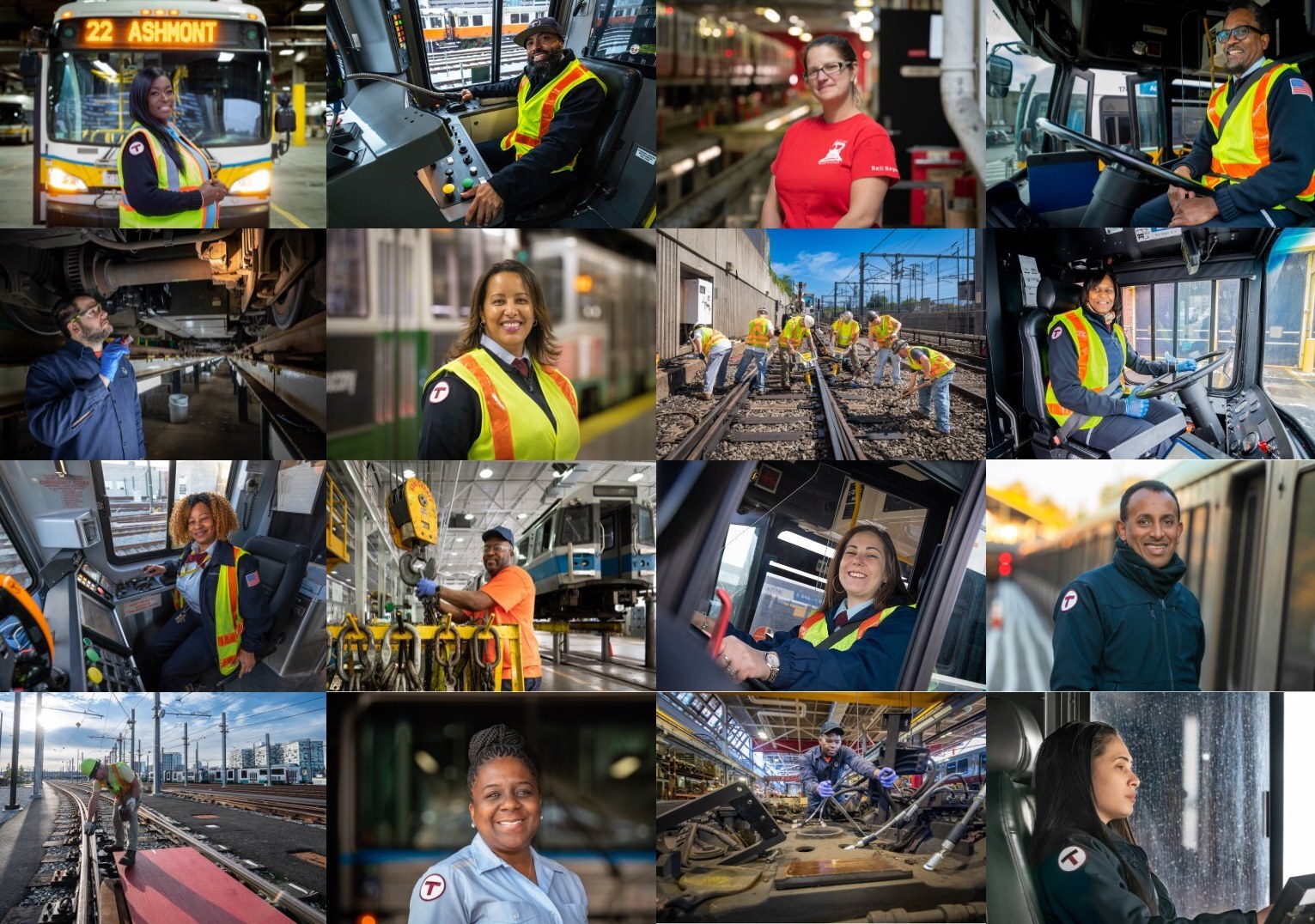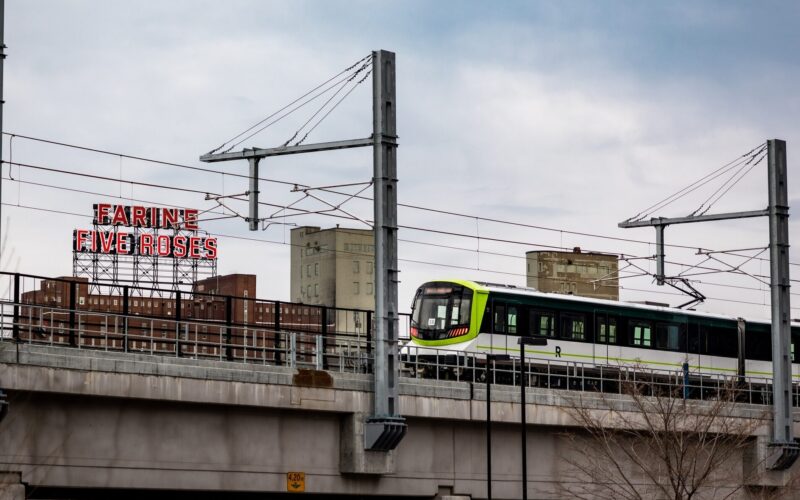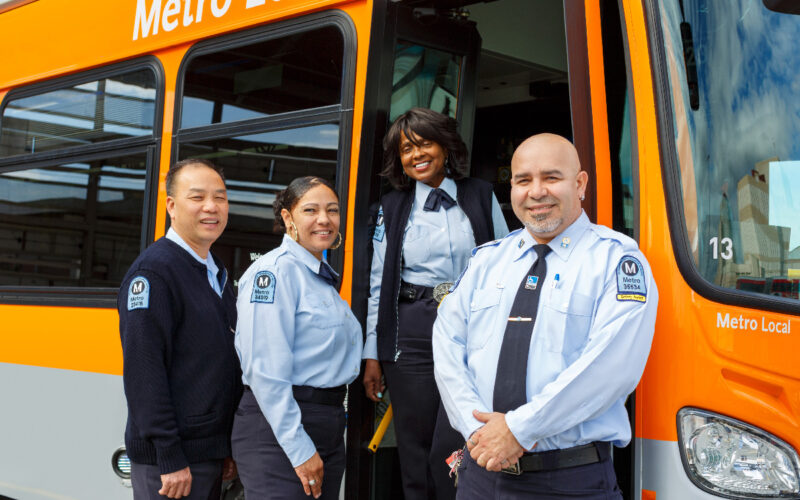
Collage of MBTA employees. Photo credit: MBTA Instagram
Whether we’re in a city, suburb, or small town, most of us work hard to make a better future for our families, and we should be able to rely on good public transit to keep us on the move. But right now, transit service is being hurt by a shortfall in transit workers. Transit has historically provided some of the best working-class jobs in America, operating and repairing buses and trains, making the parts and laying track or street improvements. Many Black and brown families joined the middle class as train conductors, bus mechanics, and transit factory workers. Workers came from the same communities that used service. Good jobs and the ability to travel opened opportunities.
But over the last 30 years, transit – and the labor that makes it run – has been under attack from anti-government elected officials and wealthy corporations. As a result, every level of government cut funding that can be used to run more buses and trains, and stopped investing in the people that make up the transit workforce. Fortunately, we can make transit good jobs again: by increasing wages and improving benefits, having schedules that work for parents, protecting drivers with new safety measures, and protecting these as public and/or union jobs.
The Massachusetts Bay Transportation Authority has begun to do just that. Last week, Massachusetts Governor Maura Healey announced that MBTA bus operators will transition from being among the lowest paid to the highest paid in the transit industry. This new beginning comes as the MBTA and their union, Carmen’s Local 589 reached a historic agreement last week to increase bus operators’ starting wages from $22.21 to $30 an hour and affects nearly 6,000 current employees.
The deal came at a time when the MBTA and Boston’s riders needed it most. Operator shortages at the MBTA have been responsible for ongoing service cuts and cancellations plaguing the system. The MBTA has been facing a triple whammy of planned retirements, the downstream effects of the pandemic, and the constant effort needed to hire and retain the talent needed to keep service going.
Service cuts have exacerbated racial inequities in Boston, and Black and brown communities have been disproportionately impacted. As a result, people in these communities with the financial means are opting into car ownership, and are less likely to return to transit. And individuals who are financially unable to access a vehicle are facing longer wait times, missed opportunities, and lost wages.
In order to reinstate pre-pandemic service levels, the MBTA realized it needs to make operating jobs more attractive. This new agreement between MBTA and the union provides an 18% wage increase over four years. But in recognition that wages are not the only aspect of a good job, the agreement also addresses multiple operator concerns by addressing physical, mental, and financial safety. The deal protects drivers’ wages in the event of an on-the-job assault and expands bereavement to include domestic partners. The agency has also established a committee to review how to improve access to bathrooms along routes.
The MBTA is also revamping its hiring process to bring more candidates through the door. To increase public awareness of transit jobs, MBTA is meeting candidates in the community by hosting job fairs online and in person. The agency is fast-tracking the hiring process, and eliminating multiple barriers by providing paid training for new operators to obtain their commercial driver’s license, tuition reimbursement, and offering up to $7,500 in bonuses to new drivers hired as full-time employees. Previously, new operators were hired under part-time contracts and limited to 30 hours of work per week for a three to six-month probationary period. Now, new operators begin as full-time employees on their first day.
With hundreds of positions available, there’s no shortage of opportunities at MBTA.
Kudos to the MBTA, Local 589, and Massachusetts Governor Maura Healey for recognizing that improving operator wages, benefits, and quality of life is an essential step for keeping the Boston region moving. Other agencies and regions facing similar workforce challenges would do well to take note.
Editor’s update: Since the new contract was ratified, bus operator applications to the MBTA have surged by 365%.
 On Track for Success: Decoding Montreal’s REM Model for Efficient Transit Projects in the U.S
On Track for Success: Decoding Montreal’s REM Model for Efficient Transit Projects in the U.S
Why is it so difficult to build subway and light rail projects in America? Every week there’s a new story about an American transit project that is behind schedule, over budget, or “paused”. Montreal’s Réseau express métropolitain (REM) stands out as a recent North American project that has begun to address some of the challenges that have foiled so many others. What is REM getting right that other projects aren’t?
Read More New Drug Testing Rule from USDOT Could Help Alleviate the Bus Operator Crisis
New Drug Testing Rule from USDOT Could Help Alleviate the Bus Operator Crisis
New drug testing rules from the USDOT could make it easier for transit agencies to recruit more operators - but only if they implement the rule.
Read More